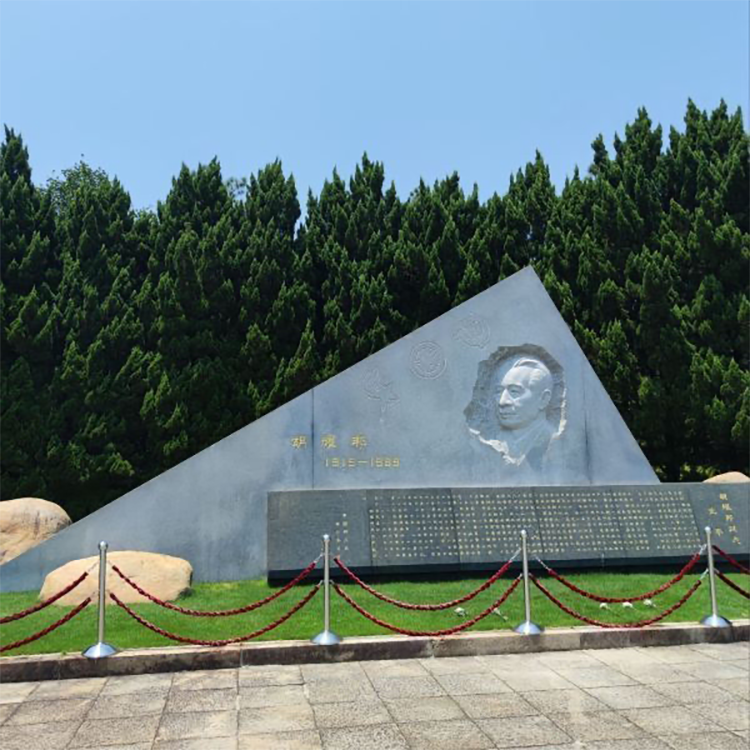Fuhua Mountain near Poyang Lake: Red Heritage and Natural Beauty
Nestled on the lakeshore of Poyang Lake in Jiujiang, Jiangxi, Fuhua Mountain Scenic Area is a tranquil, green hill ringed by shimmering waters. A national 4A attraction, it uniquely blends red revolutionary history with vibrant wetland ecology. From the solemn Hu Yaobang Mausoleum to pine‑fringed trails and migratory bird flocks, visitors experience both historical depth and natural healing.
1. Soulful Core: A Symphony of Red Culture and Ecological Beauty
The heart of Fuhua Mountain lies in its dual identity as a “red spirit heritage site” and an “ecological window on Poyang Lake.” Anchored by the Hu Yaobang Mausoleum as a spiritual landmark and framed by lush forest and wetland birdlife, the site functions as a living patriotic education space and a restorative nature escape for urban visitors.
The Hu Yaobang Mausoleum sits on the lakeside slope covering about 1.1 square kilometers. A granite memorial stone records the life and reforms of this national leader. The mausoleum’s design is simple and solemn, encircled by ancient pines and cypresses that symbolize resilience. Each year around Qingming, visitors from across China come to lay flowers and pay respects.
Complementing the memorial is Fuhua Mountain’s natural “oxygen bar,” where more than 300 plant species thrive. Maritime pines sway with the breeze and camphor trees spread broad canopies. Every season offers attractions: spring wildflowers, summer shade for cooling, autumn foliage, and winter migratory birds.
2. Echoes of History: From Reform Spirit to Wetland Protection
The mausoleum is more than a memorial; it preserves memories from China’s early reform era. The on-site museum uses rare photographs and artifacts to vividly recreate social change in the 1980s. In the red experience zone, visitors can join reenactments or themed lectures to deepen understanding of that passionate period.
Poyang Lake’s wetlands tell a different, natural story. As a crucial stop on the East Asian–Australasian flyway, the area hosts tens of thousands of migratory birds each winter, including endangered species such as cranes and Oriental white storks. Observation platforms with professional telescopes are available; December through February is peak birdwatching season.
3. Natural Wonders: Poyang Lake’s Four Seasonal Canvases
– Spring (March–May): New reeds and green shoots in the wetlands; rapeseed flowers along the shore create a golden sea.
– Summer (June–August): The lake swells, producing expansive “water and sky” vistas; early morning mist turns the landscape into an ink painting.
– Autumn (September–November): Fuhua Mountain’s red leaves color the forests and the lake mirrors sunset hues—photographers flock here.
– Winter (December–February): Migratory flocks gather; scenes of cranes taking flight were named one of the Yangtze Basin’s top ecological wonders by China National Geographic.

4. In‑Depth Experiences: From Hiking to Cultural Immersion
– Ecological Hiking: A 5 km wooden boardwalk loops through Fuhua Mountain, ideal for families and easy walking; interpretive signs identify local plants.
– Wetland Birdwatching: Early mornings offer the best sightings—bring a telephoto lens and join guided tours to find rare species.
– Red Culture Study Tours: Group bookings for the “Follow Yaobang’s Path” themed route include historical briefings and interactive Q&A.
5. Practical Tips: Transport and Itinerary Suggestions
– Location: About 60 km from Jiujiang city center—roughly a one‑hour drive. From Nanchang, take the high‑speed train to Gongqingcheng Station (30 minutes), then a 15‑minute taxi to the park.
– Opening Hours: 8:30–17:00 (the mausoleum area is closed on Mondays for maintenance).
– Admission: Park access is free; guided museum talks cost ¥50 per session (advance booking required one day ahead).
– Avoiding Crowds: Public holidays are busy—visit weekday mornings. For autumn foliage and winter birdwatching, reserve spots early.
6. Food and Lodging Tips: Lakeside Flavors and Comfortable Stays
At the park exit, the “Poyang Fisher Village” serves local lake specialties such as stir‑fried shepherd’s purse with preserved pork and steamed silverfish with egg. Overnight options include boutique hotels in Gongqingcheng (for example, Poyang Lake International Hotel) or lakeside homestays where you can fall asleep to the sound of waves.

Closing
Fuhua Mountain is like an open, three‑dimensional book: one hand holds sweeping modern history, the other a ceaseless natural poem. Whether you come to trace historical footprints or to meet the wetland’s winged inhabitants, this red‑green sanctuary delivers more than expected. When planning your Jiangxi itinerary, be sure to add this serene corner of Poyang Lake to your list.


